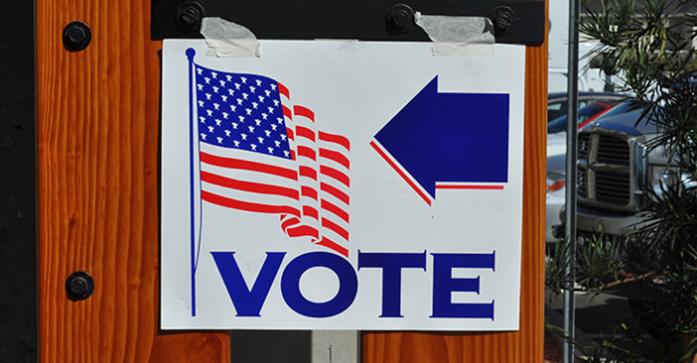As the world directed its attention to the Paris climate-change conferences, ISIS, and impending GOP debates earlier this week, history was made in the Middle East.
On Sunday, according to Al Jazeera, at least 18 women were elected to municipal positions in Saudi Arabia. Moreover, this was the first election in Saudi Arabian history that included female candidates and female voters.
This is an amazing step forward for a country in the Middle East. According to the Huffington Post, in 2015, the majority of the 10-worst countries for women’s rights are located in the region.
However, rather than furthering the cause for equal rights for women in the Middle East — and around the world — the elections in Saudi Arabia have shone a light on some of the obscene measures in place to oppress women.
The Daily Iowan Editorial Board believes that Saudi Arabia’s move to allow women to vote and run in elections is an important step but that, in the grand scheme of equal rights, much more must be done.
For example, according to Al Jazeera, because of a strict division of sexes in public facilities, female candidates could not meet directly with men during the campaign. To put this into perspective, this means that the majority of voters cannot even see or hear from the female candidates. While this makes the election wins more impressive, it speaks to the culture of the country.
As if it wasn’t already an uphill battle for the women — 900-some ran against nearly 6,000 men for only 284 seats, according to the Al Jazeera article — measures such as limiting contact between the sexes in public facilities makes it close to impossible for women to win. And although 18 women were elected, those women represent fewer than 1 percent of the 2,100 and, more significantly, an empty gesture made by the Saudi government.
Not only did the separation of men and women prove difficult for the female candidates, but the roadblocks put in place by the Saudi government go deeper. According to the article, “Women also said voter registration had been hindered by bureaucratic obstacles, a lack of awareness of the process and its significance, and the fact that women could not drive themselves to sign up.”
According to the Wall Street Journal, many women actually did view the election as a turning point for the Saudi government. The government has historically been run by an absolute monarchy that bans women from driving and traveling abroad without the approval of a male relative.
It is this very female support that proves just how damaged the system is. If women feel that the right to vote — without the right to even drive or leave the country — is a substantial change, the culture is profoundly flawed.
Saudi Arabia is making strides that other Middle Eastern countries have not yet made, and the right to vote and hold public office cannot be undermined. But many of the fundamental rights that had been established in other countries when women finally gained the right to vote are yet to be established in Saudi Arabia.



